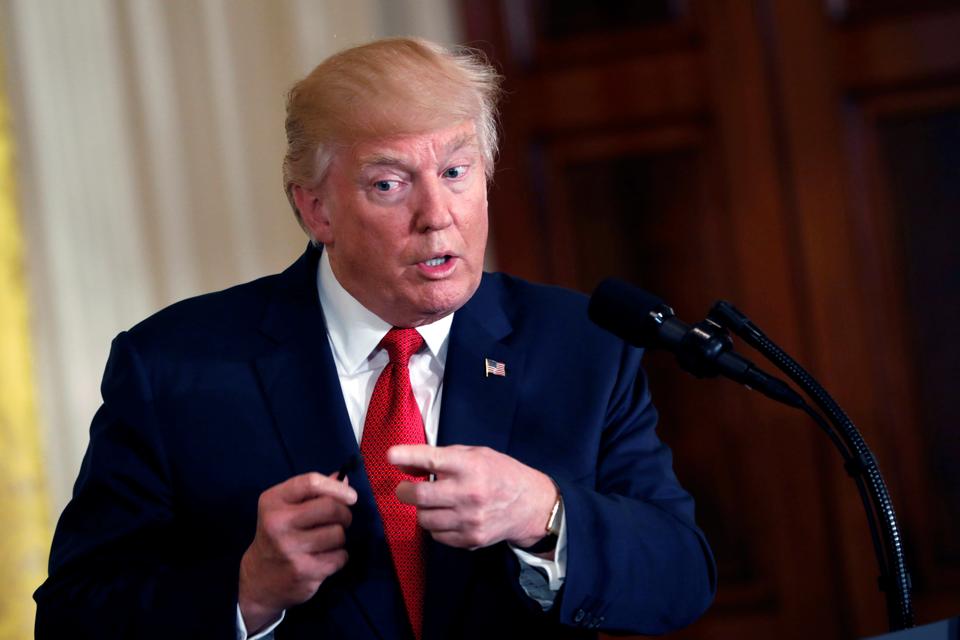London-A shift can be easily detected in the United States President Donald Trump’s campaign speech and post-inauguration stances. The 70-year old’s take on Chinese President Xi Jinping and NATO has changed, but the same cannot be said for Trump’s view on curbing Iran’s expansionist ambitions in the Middle East and fighting the war against ISIS terrorist group.
Bloomberg reported that Trump personally intervened to inject tougher language into a State Department letter to Congress last week that found Iran was in compliance with the deal limiting its nuclear program, according to an administration official familiar with the matter.
The letter to Congress from Secretary of State Rex Tillerson certified that Iran is complying with terms of the accord it reached with the US and five other world powers in 2015 to restrict its nuclear activities in return for relief from certain economic sanctions, a finding required by US law every 90 days.
But the final version highlighted Iran’s designation as a state sponsor of terrorism, reflecting Trump’s intervention after the president read a draft letter that he found too soft on Tehran, said the official, who asked not to be identified discussing internal deliberations. The letter also said the administration will review whether to reimpose the US sanctions linked to the nuclear program despite Iran’s compliance, Bloomberg added.
A day after sending the letter to Congress on April 18, Tillerson appeared at the State Department to sharply criticize the nuclear deal reached under former President Barack Obama, calling it “another example of buying off a power who has nuclear ambitions. We buy them off for a short period of time and then someone has to deal with it later.”
The rhetoric used when addressing the Iran deal is one of the few foreign topics enjoying consensus of each of the White House, defense and foreign officials and the United Nations US ambassador.
Unlike agreement on the Iran deal approach, remarks and statements made by Tillerson, US Ambassador to the United Nations Nikki Haley and White House press secretary Sean Spicer often are conflicting when reviewing Syria’s despot Bashar al-Assad’s stay in power, the USS Carl Vinson docking in the Korean peninsula, or other issues.
Speaking last week at a press conference with Italian Prime Minister Paolo Gentiloni, Trump accused Iran of “not living up to the spirit” of the nuclear deal signed in 2015 under the Obama administration and termed the agreement as “terrible” and “badly negotiated”.
“They are not living up to the spirit of the agreement, I can tell you that,” Trump told reporters.
“I think they (Iranians) are doing a tremendous disservice to an agreement that was signed. It was a terrible agreement. It shouldn’t have been signed.”
For her part, Haley hinted that Iran is the sole party profiting off strife in the Middle East, accusing the cleric-led nation without naming for being a state sponsor of terrorism.
Haley said multiple conflicts in the Middle East have left hundreds of thousands dead and millions displaced. The influx of foreign terrorist fighters across borders has been compounded by a vague network of terrorist groups threatening international peace and security.
The Security Council is addressing a number of conflicts on a regular basis, but it often overlooks the interaction between conflicts and some role players in provoking conflict and exploiting the situation across the region, said Haley in an underlying reference to Iran’s ongoing aggressions.
